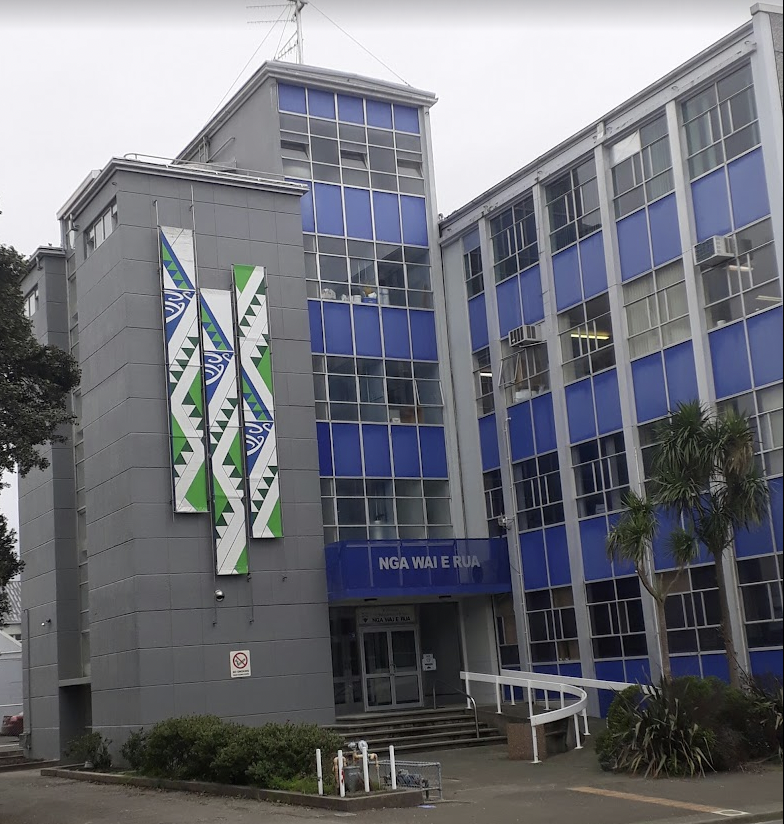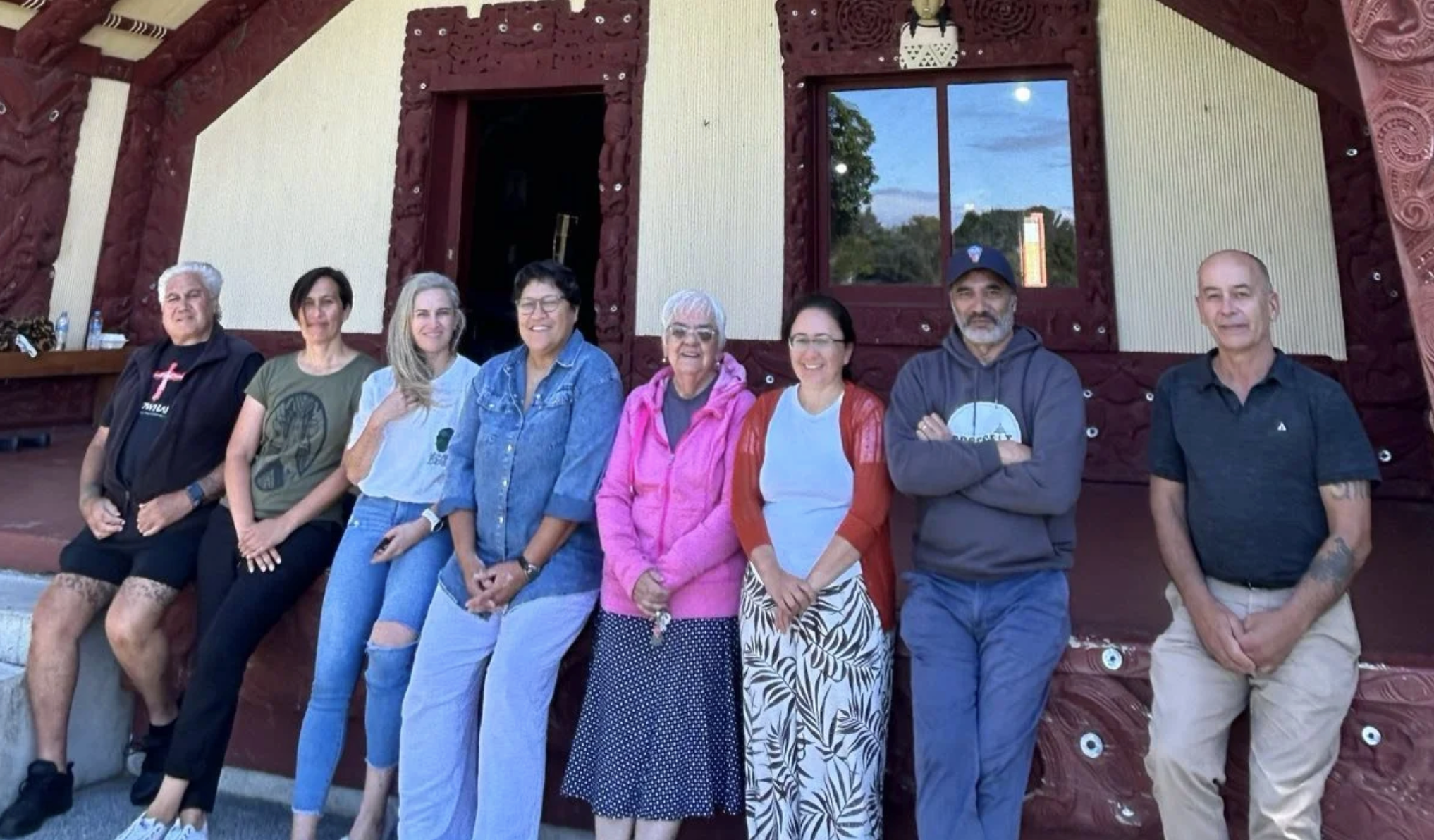Explore our governing bodies—who they are and what they do.
On 30 September 2011, Rongowhakaata signed a Deed of Settlement at Whakatō Marae, Manutūkē. The Rongowhakaata Settlement Trust now manages assets from this settlement, supported by business groups within our governance that aid our Trustees in key decisions.
Over the years, we’ve navigated both traditional and formal trustee models to reach where we are today.
Where did it all start?
In 1986, TROTAK (Te Runanga o Tūranganui a Kiwa) was established to assert our tino rangatiratanga as Tūranga Iwi. Following our Treaty claim in 1989, the Rongowhakaata Claims Committee was formed. In 2011, the Rongowhakaata Settlement Trust was established to manage settlement assets, later becoming the Rongowhakaata Iwi Trust.
Where are we today?
There are currently 15 individuals in governance roles – comprising of eight elected Trustees and nine skilled independent directors and committee members – who uphold our Deed's requirements while anchoring decisions in mātauranga Māori.
These committees play a vital role for the Board, supporting our commitment to competency, reliability, and integrity. They help establish internal processes to address significant challenges and issues while maintaining consistent performance. Members of committees are appointed, rather than elected, based on skills, collective experience, and diverse perspectives.
We measure success beyond financial gains, aligning outcomes with our core values of Tūranga tangata, Tūranga toi, and Tūranga whenua. Since 2022, we’ve moved from passive to active investment in iwi assets, prioritising both financial growth and cultural wellbeing to benefit future generations.
Our decisions are shaped by Rongowhakaata identity and mātauranga, not dictated by Western frameworks. This balance allows us to adapt to changing environments and adapt as governments change, just as our entrepreneurial tīpuna did.
Meet our leadership and learn more about what they do.
-
What is Tūranga Group Holdings Limited (TGHL)?
TGHL is where we manage the whenua owned by Rongowhakaata in Tūranga, in line with Ture Pākehā (legal requirements). It’s a commercial holding company owned 100% by Rongowhakaata Iwi Trust, designed to hold and grow assets on behalf of our iwi.
But TGHL isn’t just about legal compliance. It’s an opportunity to rethink how we care for our whenua, reconnect with our identity, and bring our Indigenous values into the business space. We’re working to actively connect with the whenua, not just passively manage it.
What does TGHL do?
Since Rongowhakaata Iwi Trust is a charitable entity, it can’t hold commercial assets. That’s TGHL’s role.
TGHL manages and grows our iwi’s commercial assets, like properties and investments. Its purpose is to generate sustainable economic returns for the Iwi, while embedding Rongowhakaata values into every decision.
What are the commercial assets we are talking about?
The properties and assets that are part of the Iwi Trusts Group portfolio such as Wai-ō-hīhāhore (the railway station), Peel st property, as well as new assets we have invested in like the Native Nursery at Matawhero. You can find out more about our Iwi Assets here.
How did it come about?
TGHL was set up post settlement to manage our commercial assets.
Why do we need TGHL?TGHL provides the governance and expertise needed to grow our assets in a way that prioritizes our identity and iwi values over profit alone.
By focusing on investments that nurture mātauranga, we aim to:
Strengthen mana whenua identity
Empower our people to lead confidently
Achieve long-term vitality for our iwi
In 2022-23, we shifted from relying on Government contracts to growing our own capital through TGHL’s investment strategies.
Who runs TGHL?
In New Zealand, every registered company must have at least one director who meets legal obligations.
TGHL is governed by experienced individuals with mātauranga-led perspectives and skills in business, law, and economics.
The current directors are:
Moera Brown (Chair – Independent Director)
David van der Zouwe (Independent Director)
Meka Whaitiri (RIT Trustee Director)
Phila Lagaluga (Associate Director)
Directors are appointed by the elected RIT Trustees for three-year terms, which can be extended.
-
What is RIAHC?
Established under the Māori Fisheries Act 2004, RIAHC is the commercial arm of the Rongowhakaata Iwi Trust, managing fisheries assets on behalf of the iwi. It’s a fully owned subsidiary of the Iwi Trust.What does RIAHC do?
RIAHC oversees fisheries assets to ensure they are managed sustainably and profitably, supporting the iwi’s economic growth and wellbeing.
What are our fisheries assets?
These include fishing rights, quotas, and shares allocated through Treaty settlements. Managed according to Rongowhakaata values, they provide dividends that support our iwi.Who leads RIAHC?
The RIAHC Board consists of one trustee and two independent appointees with expertise in fisheries, commerce, and mātauranga Māori. Current members are:Moera Brown (Independent Director)
Maru Samuels (Independent Director)
Meka Whaitiri
(Trustee Director)Kleat Nepe (Consultant)
Who makes appointments?
Board members are appointed by the Rongowhakaata Iwi Trust Board based on individuals with proven skills and experience in fisheries, commercial sectors, and mātauranga. -
What is the AR&F, A&R Combined Committee ?
The Committee (combined in 2025) brings together appointments, remuneration, audit, risk and financial oversight in one trusted forum. It protects Rongowhakaata by making sure our people are appointed fairly, paid fairly, and that Trust finances and risks are managed with transparency.
The committee safeguards the Trust’s financial health, and ensures compliance with regulations. It advises the Board, who makes final financial decisions.What does this committee do?
Key responsibilities include:Appointments & Remuneration
Recruit and appoint Trustees, Directors, committee members, management and kaimahi.
Set and review pay structures, expense policies and performance processes.
Evaluate performance and recommend training and development.
Ensure decisions are objective, consistent and free from unfair conflicts of interest.
Audit, Risk & Finance
Communicate with auditors and review financial reports, policies and audits.
Monitor statutory and regulatory compliance.
Oversee corporate risk assessments, the risk register and internal controls.
Advise the Board on financial health; the Board retains final decision-making.
Why this committee matters?
By bringing appointments and financial governance together we strengthen accountability, transparency and ensure the Trust’s decisions support inter-generational success by following best practice standards.Who is on the Committee (Current 2025)?
Roxanne Smith ( Chair )
Tia Greenaway (Independent member)
Hikurangi Mills (Independent member)
Tania Rauna (Independent member)
Members are appointed by the Rongowhakaata Iwi Trust Board. Management cannot be members.What skills are required?
Members are chosen for a mix of skills, including:
Knowledge of Rongowhakaata reo me ōna tikanga.
Senior experience in human resources, appointments and remuneration frameworks.
Expertise in financial reporting, audit practice, and financial management.
Ability to interpret financial statements and assess risk.
Understanding of the Rongowhakaata Iwi Trust Deed.
How long are terms?
Members serve three-year terms, with the possibility of extension.The committee meets at least four times a year — typically every two months — with extra meetings called when needed.


